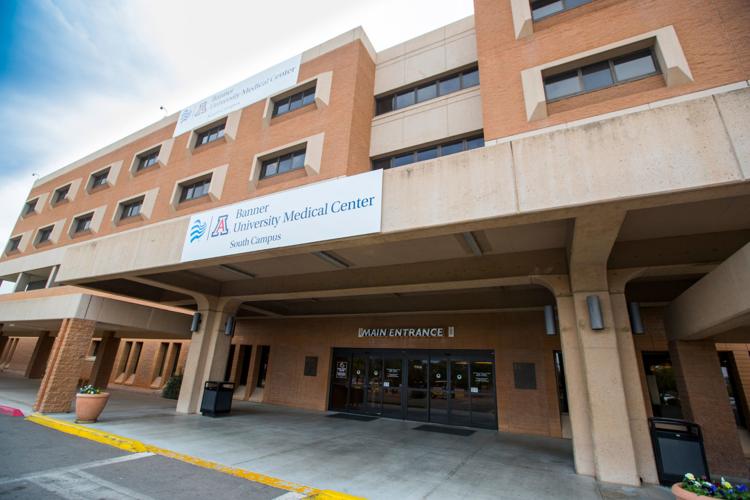Careful attention to patient safety earned two Tucson hospitals an “A” grade in a new report.
Banner University Medical Center-South and Northwest Medical Center both received the highest score possible from Leapfrog Group’s bi-annual patient safety assessment.
It was a significant jump for the two hospitals, which both received “C” grades the last time each participated in the study.
Northwest Medical Center has not been part of Leapfrog’s assessment since the fall of 2017, while Banner-University participated in the spring of this year.
The scores measure how hospitals do with preventable errors, accidents, injuries and infections.
Other Tucson hospitals graded were:
- Carondelet St. Mary’s, “B”;
- Carondelet St. Joseph’s, “B”;
- Tucson Medical Center, “B”;
- Banner-University Medical Center, “C”.
The hospital studies started 20 years ago, when the Institute of Medicine issued a report entitled “To Err is Human,” which revealed nearly 100,000 lives are lost every year due to preventable medical errors. Research since then suggests the number may be twice that high.
Arizona ranked 32nd overall for patient safety in the latest report, an improvement from 34th in the spring. About 26 percent of Arizona hospitals received an “A” ranking.
The reports are the nation’s only rating focused entirely on patient safety.
More than 2,600 hospitals were graded nationwide. The breakdown: 33% earned an “A”; 25 percent earned a “B”; 34% earned a “C”; 8% received a “D” and just under 1% got an “F.”
“In stark contrast to 20 years ago, we’re now able to pinpoint where the problems are, and that allows us to grade hospitals,” said Leah Binder, president and CEO of The Leapfrog Group. “It also allows us to better track progress. Encouragingly, we are seeing fewer deaths from the preventable errors we monitor in our grading process.”
The five states with highest percentage of “A” hospitals are Maine, Utah, Virginia, Oregon and North Carolina. By contrast, there were no “A” hospitals in three states: Wyoming, Alaska and North Dakota.
Here’s the rundown of how Tucson’s hospitals and medical centers scored, as well as the areas where they scored below average and need improvement:
Carondelet St. Mary’s Hospital, 1601 W. St. Mary’s Road: “B”
Outbreaks of MRSA, a bacterium that’s harder to treat than most strains of staph; Infections from a bacterium called clostridium difficile; surgical wound splits open; death from treatable serious complications; serious breathing problems arising after surgery; safe medication administration; dangerous bed sores; patients’ perspectives on communication with doctors; patients’ perspectives on communication with nurses; responsiveness of hospital staff.
Carondelet St. Joseph’s Hospital, 350 N. Wilmot Road: “B”
Outbreaks of MRSA; infection in the blood; death from treatable serious complications; collapsed lung; dangerous blood clots; safe medication administration; communication with doctors, nurses and responsiveness of hospital staff to patients.
The response of the two Carondelet hospitals:
“Every day, we focus on driving improvements in care delivery and patient satisfaction. Our clinical leaders regularly review our hospitals’ patient care processes and compares our data to nationally recognized benchmarks and best practices. Nothing is more important to us than offering our patients trusted care in a safe environment,” said Keith Jones, communications manager for Carondelet Health Network.
“While scoring methods differ by organization and none provide a complete picture of the care provided to patients, we use this and other publicly available information to continually improve our processes, training and the way we deliver care to our patients.”
Banner University Medical Center, 1501 N. Campbell Ave.: “C”
Communication with doctors, nurses and responsiveness to hospital staff; outbreaks of MRSA; surgical site infection after colon surgery; dangerous object left in patient’s body after surgery; death from treatable serious complications; collapsed lung; dangerous blood clots; accidental cuts and tears; communication with patients about discharge; safe medication administration; patient falls and injuries.
Banner University Medical Center — South, 2800 E. Ajo Way: “A”
Infection in the urinary tract; dangerous blood clots; safe medication administration; communication about medications; communication with doctors, nurses and responsiveness of hospital staff to patients.
The response of the two Banner hospitals:
“Banner-University Medical Center Tucson is a Level I trauma center and academic medical center that sees patients with the most acute and complex conditions, and serves a diverse population with significant health challenges. These factors tend to skew results for hospitals like Banner – UMC Tucson when they are compared to suburban or community hospitals,” Banner-University Medicine said in a written statement Friday.
“We are pleased with our A grade for Banner-University Medical Center South. However, we will constantly work to improve safety and care at all of our hospitals. The Leapfrog survey is based on information from between 2016 and 2018. We are confident that more up-to-date results will reflect our commitment to continuous improvement and the highest standards.”
Tucson Medical Center, 5301 E. Grant Road: “B”
Infection in the urinary tract; dangerous object left in patient’s body after surgery; surgical wound splits open; accidental cuts and tears; how the staff works together to prevent errors; dangerous bed sores; patient falls and injuries; communication with doctors, nurses and responsiveness of hospital staff to patients.
The hospital’s response: “This B grade represents the incremental and sustained improvements in this organization. We have great opportunity to improve and will continue to do so with the adoption of our TMC Safe Behaviors in the coming year,” said Rick Anderson, TMC’s chief medical officer.
“Our mission to provide exceptional healthcare with compassion is evident in this grade and the work that we continue to do.”
Northwest Medical Center, 6200 N. La Cholla Blvd.: “A”
Communication with patients about discharge; patient falls and injuries; death from treatable serious complications; communication with doctors, nurses and responsiveness of hospital staff to patients; dangerous bed sores.
The hospital’s response: “We are proud to receive this recognition from The Leapfrog Group. Our clinicians, quality and patient safety teams have been working diligently on initiatives to keep our patients safe,” said Jennifer Schomburg, CEO of Northwest Medical Center.
“The A grade from the Leapfrog Group confirms our patient safety efforts have had a positive impact at Northwest.”





